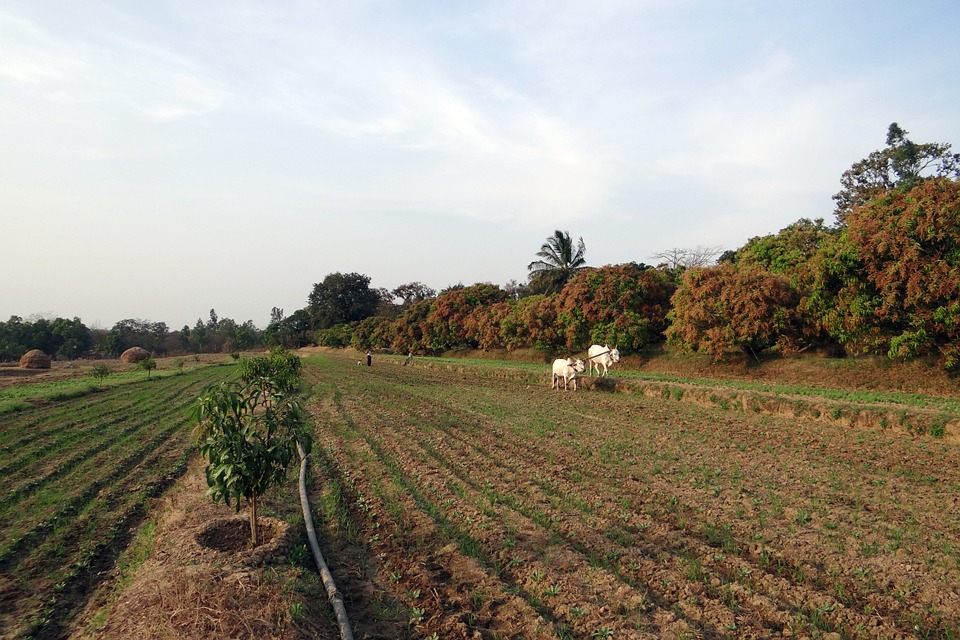News & Updates
How can India’s agricultural industry prepare for climate change?
20 February 2018

India’s latest annual economic survey revealed that climate change could hurt the income of Indian farmers by up to 25% in the medium term.
India is expected to experience extreme weather events, temperature rise and a decrease in rainful due to climate change, all of which threaten livelihoods across the country.
Agriculture is a crucial aspect of India’s economy contributing 18% to Gross Domestic Product and accounting for 50% of employment. Of these, approximately 80% of Indian farmers are smallholders with less than 2 hectares of land.
Smallholder farmers are more vulnerable to the effects of climate change and are often first to experience social, market and economic pressures.
Currently, India is home to 25% of the world’s hungry population which is at risk of increasing with the threat of climate change.
The government has conductive extensive meteorological research across the country and has found that average temperate are increasing whilst rainfall declines. The research has also shown a rise in the number of days with extremely high temperatures.
Extreme temperature shocks, such as when an area is significantly hotter than usual, causes a 4.7% decline in agriculture yield. Similarly, a significant decline in rainfall causes a 12.8% decline.
The worst affected areas of these changes are those with poor or no irrigation systems, as high temperature in these areas reduces yields by 7.6% and low rainfall reduces yields by 14.7%.
The Indian government reports that in a year when temperatures are 1°C warmer than usual farmers’ in come would fall by 6.2% and in a year with rainfall levels less than 100mm farmers’ incomes would fall by 15%.
By the end of the 21st Century temperatures in India are predicted to rise by 3-4°C and without any adaptation by farmers their income will decline by 20-25%, especially in unirrigated areas.
However, there are ways to counter the effects of climate change and prepare for them. Five key methods that are crucial for India are: smart irrigation, data driven supply chains, reduction of post-harvest loss, crop insurance and frequent research.
Smart irrigation:
Less than 50% of agriculture in India is irrigated; there is a significant requirement for irrigation systems considering water scarcity and depleting ground water to be introduced.
States particularly vulnerable to climate change due to poor irrigation are: Karnataka, Maharashtra, Madhya Pradesh, Rajasthan, Chhattisgarh and Jharkhand.
Smart irrigation systems such as drip, sprinklers and water management needs to be a priority for the future of India’s agriculture.
Data driven supply chains:
New technologies such as sensors, GPS and satellite images can help collect data to make the agriculture system more resilient. They will enable different sections of the supply chain to monitor environmental conditions and can adapt how crops are produced, stores and distributed.
Post-harvest loss:
In India the post-harvest loss of major agricultural produce is estimated at US$13 billion. Only 2.2% of fruits and vegetables are sorted and processed for consumption, increasing the chances of wastage when sent abroad. In comparison, other major agricultural producers process much higher quantities of the fruit they produce: in USA this figure is 65% and in China it is 23%.
Small hold farmers miss out most from this as it is not viable to transport their produce to large scale processing plants, resulting in a large amount of waste. There is a need for India to develop local technologies for processing, packaging and transport that benefits small holder farmers.
Crop insurance:
Many farmers in India already pay into insurance programmes but they currently provide little protection. The insurance system will require changing so that small farmers are protected by low premium and long term cover.
Continued research:
Regularly updates agricultural research will be critical in increasing yields and resilience to climate change, this is particularly relevant for crops such as pulses and soybean which are extremely vulnerable to climate change.
Research will improve crop and water management practices to improve efficiency, productivity and minimise the environmental impact of farming.
Join Aid & International Development Forum at the inaugural Africa Climate Smart Agriculture Summit to discuss the issues climate change and agriculture in great depth.
Aid & International Development Forum will return for its 4th Annual Aid & Development Asia Summit this June in Bangkok, Thailand.
If you’d like to stay informed on the latest updates in aid and development, please sign up to the AIDF newsletter.
Photo credit: Bishnu Sarang